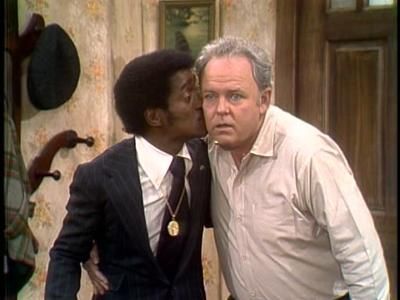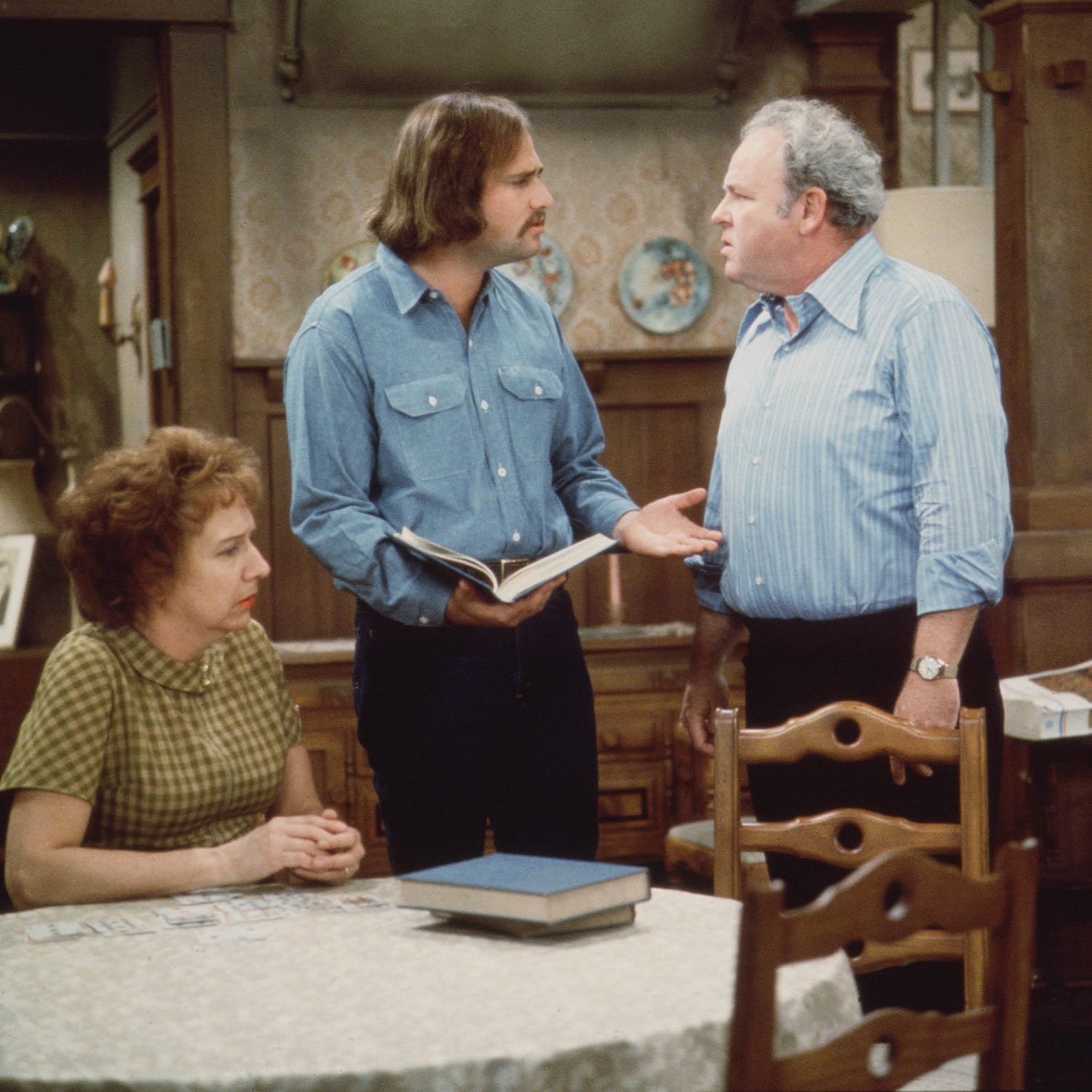
Introduction: A Sitcom Phenomenon
All in the Family remains one of the most iconic sitcoms of the 1970s, launching a total of seven spin-offs that expanded its rich universe. Created by Norman Lear and Bud Yorkin, the show not only entertained but also tackled significant social issues, making a lasting impact on American television. Let’s take a journey through the All in the Family franchise and explore its influential spin-offs.
1. All in the Family (1971-1979)
At the heart of the series is the Bunker family, featuring the unforgettable Archie Bunker (Carroll O’Connor) and his wife Edith (Jean Stapleton), along with their daughter Gloria (Sally Struthers) and son-in-law Mike Stivic (Rob Reiner). Set in Queens, New York, the show used Archie’s bigotry as a lens to examine prejudice and social issues, cleverly mixing humor with serious commentary. Over nine seasons and 205 episodes, All in the Family won numerous awards and left an indelible mark on pop culture.
2. Maude (1972-1978)
The Bold Spin-off Starring Bea Arthur
The first spin-off from All in the Family, Maude, starred the formidable Bea Arthur as Maude Findlay, Edith’s cousin. Premiering after Maude’s debut in a guest role, this critically acclaimed series tackled pressing social issues such as women’s rights and politics, echoing the spirit of its predecessor. It ran for six seasons and was nominated for multiple awards, solidifying its status as a significant part of television history.
3. Good Times (1974-1979)
A Powerful Narrative on Family and Race
Though technically a spin-off of Maude, Good Times deepened the exploration of race relations within the All in the Family universe. Centered around the Evans family living in a Chicago public housing project, the show highlighted the struggles of Black Americans while providing a blend of humor and heartfelt moments. With a six-season run, Good Times became a staple of 1970s television, thanks in part to the strong performances of its cast.
4. The Jeffersons (1975-1985)
Moving Up in the World
Arguably the most successful spin-off, The Jeffersons followed George (Sherman Hemsley) and Louise Jefferson (Isabel Sanford) as they moved to a luxurious apartment on the Upper East Side of New York City. The show not only highlighted their upward mobility but also continued the dialogue on race and class. Over 11 seasons, The Jeffersons became a cultural touchstone, known for its humor and poignant social commentary.
5. Checking In (1981)
A Short-Lived Spin-off
Focusing on Florence Johnston (Marla Gibbs), the beloved housekeeper from The Jeffersons, Checking In was short-lived, airing only four episodes. The series attempted to capture the charm of its parent show but failed to resonate with audiences, leading to its swift cancellation. Florence later returned to The Jeffersons, ensuring her character’s legacy continued.
6. Archie Bunker’s Place (1979-1983)
Continuing the Bunker Legacy
Following the conclusion of All in the Family, Archie Bunker’s Place picked up where the original left off, showcasing Archie as a widower running a bar. While it didn’t achieve the same acclaim, the show provided fans with further insight into Archie’s character and continued the story of the Bunker family.
7. Gloria (1982-1983)
A Short Journey of Self-Discovery
Focusing on Gloria Stivic, Gloria explored her life as a single mother working in New York City. Despite its connection to the beloved All in the Family characters, the series struggled to find its footing and lasted only one season, with 21 episodes.
8. 704 Hauser (1994)
A New Generation in the Old Neighborhood
The final spin-off, 704 Hauser, featured a Black family moving into the Bunker’s former home. Despite its connection to the original series, it aired for just five episodes. John Amos, who previously starred in Good Times, described his experience on the show as a positive one, highlighting Norman Lear’s willingness to adapt and listen.
Conclusion: A Lasting Legacy
The universe of All in the Family showcases the evolution of American sitcoms, tackling cultural issues and reflecting societal changes. Each spin-off, whether successful or not, contributed to a broader conversation that resonates to this day.
